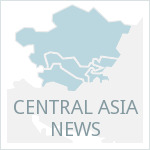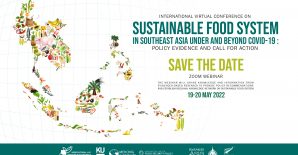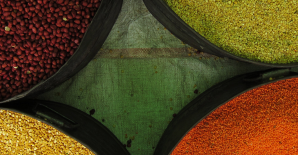News
World Bank: remittances to countries in Europe and Central Asia grew 21 percent in 2017
Remittances to countries in Europe and Central Asia grew 21 percent in 2017 after three consecutive years of decline, according to the World Bank's latest Migration and Development Brief. It attributes this trend to stronger economic growth and employment prospects in the eurozone, Russia, and Kazakhstan in addition to the appreciation of the euro and ruble against the U.S. dollar. Growth in remittances is expected to slow to 6 percent this year, mirroring the stabilization of the region's economies. - Asia-Plus
Tajikistan's foreign trade up
Foreign trade turnover in Tajikistan has increased 33 percent in the first quarter of 2018 compared to the same period last year, according to the state statistics agency. Imports outpaced exports $790 million to $243 million, representing a negative trade balance of $547 million. Tajikistan's top five trading partners in the first quarter of 2018 were, in order, Russia, Kazakhstan, China, the U.S., and Turkey. - AzerNews
Kazakhstan wheat forecasts output to drop slightly
The U.S. Department of Agriculture's (USDA) Global Agricultural Information Network (GAIN) April update estimates Kazakhstan's wheat output at 14 million tons, a slight reduction from the 14.8 million tons originally forecast for the 2017/2018 marketing year. This is due to less land being allocated for wheat than last year. Land allocated for cotton will also see a decrease, whereas sown area for corn, barley, oat, oilseeds, and feeding crops will expand. The USDA also reports that wheat exports are unlikely to surpass last year's levels and that farmers' margins for wheat have shrunk in recent years. - Black Sea Grain, USDA
Turkmenistan and Uzbekistan strengthen economic cooperation
Turkmen president Gurbanguly Berdymukhamedov started a two-day visit to Uzbekistan on April 23 that focused on a range of issues including economic cooperation. Uzbek president Shavkat Mirziyoyev stated that trade turnover between the countries increased 55 percent in the first quarter of 2018. Commercial exchanges have begun in earnest and a number of agreements have been reached on agricultural and industrial trade. Mirziyoyev told journalists following bilateral talks that Uzbekistan is willing to contribute to the Turkmen-backed Turkmenistan-Afghanistan-Pakistan-India (TAPI) gas pipeline. - Radio Free Europe
Intensive gardening areas are expanding in South Kazakhstan region
Intensive gardening is expanding in South Kazakhstan, with 29,000 hectares allocated for fruit trees, berries, and grapes. According to this Kazakh TV feature, farmers believe that these products are always in demand and view them as attractive export commodities. Farmers are developing domestic offshoots of imported varieties and can receive subsidized state loans for intensive gardening. - Kazakh TV
Uzbekistan and Pakistan agree to boost agricultural cooperation
A visiting Uzbek ministerial delegation discussed increasing cooperation in agriculture with their Pakistani counterparts last week. Pakistan, represented by Minister for National Food Security and Research Sikandar Hayat Khan Bosan, offered assistance in livestock feed technology, breeding material production, and animal disease diagnostics. Pakistan is interested in Uzbek wool technology and turkey farming practices. The two sides also discussed joint ventures for crop improvement, exchange of agricultural technology, and cotton production. Pakistan and Uzbekistan are currently in the process of finalizing a memorandum of understanding on agricultural cooperation. - Dawn
Kazakh PM orders increasing meat export
Kazakhstan's meat exports are finding new markets, which Prime Minister Bakytzhan Sagintaev attributes to investments in livestock production over the past decade. Restrictions on Kazakh meat products have been lifted in China and UAE following improvements in quality control and inspections. Sagintaev is calling for further increases in production as part of a ten-year development program from 2018 to 2027. - Trend News Agency
USTR announces new preference eligibility reviews of India, Indonesia, and Kazakhstan
The Office of the United States Trade Representative (USTR) announced on April 12 that it will review the eligibility of India, Indonesia, and Kazakhstan under its Generalized System of Preferences (GSP) program that offers duty-free entry for specified products from developing countries. Kazakhstan is being targeted for review because of a petition filed by the American Federation of Labor and Congress of Industrial Organizations (AFL-CIO) that alleges that Kazakhstan is failing to uphold workers' rights, including freedom of association and collective bargaining. Kazakhstan is the 12th largest beneficiary of U.S GSP benefits. The USTR is a Cabinet-level position housed within the Executive Office of the President. - International Centre for Trade and Sustainable Development, Office of the United States Trade Representative
Russia endorses formation of free trade zone between EAEU and Iran
Russian prime minister Dmitry Medvedev signed an interim four-year agreement that will establish a free trade area for a limited range of goods between Eurasian Economic Union (EAEU) member states and Iran. Russian approval of the free trade zone could help finalize the deal within months, according to a Russian presidential aide. Vietnam became the first country outside of the former Soviet Union to sign a free trade deal with the EAEU in 2016. - Asia-Plus, Russia Today
Analysis & Related Information
Tajikistan still considering engagement with the Eurasian Economic Union
Russia has recently proposed that Tajikistan join the Eurasian Economic Union (EAEU) as an observer, a departure from previous calls for full membership. Whether Tajikistan would join the EAEU has been a matter of long-running speculation, especially after Kyrgyzstan's accession in 2015. According to one analyst quoted in the article, the EAEU has managed to abolish internal constraints on labor mobility among its members. Easier access to jobs in Russia and Kazakhstan for its citizens could compel Tajikistan to join the EAEU in some capacity. - The Diplomat
Caspian games: Central Asian countries vie for connectivity market
This energy-focused article in Asia Times reflects upon Azerbaijan, Kazakhstan, and Turkmenistan's attempts to position themselves as hydrocarbon "hubs" in the Caspian region. Moreover, it also discusses the role of outside actors including China, Russia, and the European Union in shaping and complicating the region's energy politics and briefly touches upon how Iranian and Turkish interests could be affected by the ongoing developments in energy connectivity in the Caspian. - Asia Times
EBRD and Green Climate Fund invest in hydro power in Tajikistan
The European Bank for Reconstruction and Development and the Green Climate Fund are providing $88 million in financing toward a rehabilitation project for the Qairokkum hydroelectric power plant in Tajikistan. The contribution, of which $23 million will come in the form of a GCF grant, will fund improvements to concrete structures and the installation of power-generating equipment. The project will not only increase the plant's generating capacity from 126 to 174 megawatts, but also introduce innovative resilience measures that will enable the plant to deal with the impacts of climate change. - Renewable Energy Magazine
"Are these the most beautiful textiles in the world?"
An award-winning art critic for the Washington Post provides an introduction to Central Asian textiles in advance of a pair of exhibitions showcasing Central Asian ikats in Washington, DC this summer. He briefly describes the environmental and historical factors that contributed to their development. - Washington Post
Publications & Reports
The role of industrial policy in the economic development of Uzbekistan
E. Bae and J. Mah (2017). Post-Communist Economies, electronic publication ahead of print.
Potential and problems of the development of speed traffic on the railways of Uzbekistan
S. Djabbarov, M. Mirakhmedov, A. Sladkowski (2018). Transport Systems and Delivery of Cargo on East-West Routes, book chapter, pp. 369-421.
The influence of agroclimatic factors on the formation of oil content in flax seeds in the north of Kazakhstan
E. Gordeyeva, N. Shestakova (2018). Journal of Ecological Engineering, 19(3), pp. 102-105.
Econometric analysis of money demand in a dollarized economy: the case of Tajikistan
M. Khakimova, M. Ahad (2018). Journal of Applied Economics and Business Research, 8(1), pp. 24-37.
Rethinking energy security and services in practice: national vulnerability and three energy pathways in Tajikistan
M. Laldjebaev, S. Morreale, B. Sovacool, K. Kassam (2018). Energy Policy, 114, March 2018, pp. 39-50.
Systems to reduce mycotoxin contamination of cereals in the agricultural region of Poland and Kazakhstan
A. Nugmanov et al. (2018). Crop Protection, 106, April 2018, pp. 64-71.
The competitiveness and sustainable economic development of Tajikistan regions
M. Asimova, A. Avezov, P. Premysl, S. Rakhimi (2018). Journal of Competitiveness, 10(1), pp. 73-88.
Impact of remittances and international migration on poverty in Central Asia: the cases of the Kyrgyz Republic, Tajikistan, and Uzbekistan
S. Murodova (2018). Journal of Applied Economics and Business Research, 8(1), pp. 38-56.
Kazakhstan grain and feed annual report
U.S. Department of Agriculture (2018). Report no. KZ-05, April 2018.
Impact of non-tariff barriers on trade within the Eurasian Economic Union
R. Vakulchuk and A. Knobel (2018). Post-Communist Economics, electronic publication ahead of print.
Migration and remittances: recent developments and outlook
World Bank (2018). Migration and Development Brief No. 29, April 2018
Events & Call for Papers
3rd Annual International Conference on Agriculture, Food Security, and Nutrition in Eurasia Featuring IFPRI's 2018 Global Food Policy Report
International conference and publication launch. 30 May 2018 in Moscow, Russia. The International Food Policy Research Institute is partnering with the Eurasian Center for Food Security (ECFS) at Lomonosov Moscow State University and the World Bank to launch IFPRI's 2018 Global Food Policy Report in Russia. For more information about the report, please visit the GFPR website. For conference details, please contact Jarilkasin Ilyasov at IFPRI.
International Conference on Agricultural Transformation, Food Security, and Nutrition in Central Asia Featuring IFPRI's 2018 Global Food Policy Report
International conference and publication launch. 1 June 2018 in Tashkent, Uzbekistan. The International Food Policy Research Institute is partnering with the Westminster International University in Tashkent (WIUT) to launch IFPRI's 2018 Global Food Policy Report in Uzbekistan. For more information about the report, please visit the GFPR website. For conference details, please contact Jarilkasin Ilyasov at IFPRI.
New Round of Collaborative Research on Food Security in Eurasia 2018
Call for applications. The Eurasian Center for Food Security and World Bank are announcing collaborative research on the theme of policies aimed at supporting food value chains by (1) improving food quality and nutrition or (2) avoiding food loss. Research will take the form of case studies and selected research teams will receive funding from the World Bank. Please see the above link for further details. Deadline to submit applications is 5 May 2018.
"Agriculture Trade and Foreign Investments for Sustainable Regional Integration in Caucasus and Central Asia" Conference
6 – 7 September 2018 in Baku, Azerbaijan. Organized by Leibniz Institute of Agricultural Development in Transition Economics (IAMO) and Institute of Scientific Research on Economic Reforms (ISRER). The aim of this conference is to serve as a platform to discuss options for regional integration in the Caucasus and Central Asian countries and to explore opportunities for increasing agricultural exports from the region. Researchers, public officials, and private sector partners are invited to participate. The conference will be conducted in English and Russian. Please click on the above link for further details. Abstract submission is open until 11 May 2018.
2018 Regional Summer School for Young Economists
Call for applications. 4 – 15 June 2018 in Tashkent, Uzbekistan. Organized by the International Food Policy Research Institute (IFPRI) and Westminster International University in Tashkent (WIUT). The course will largely focus on developing econometric analysis, policy analysis, and quantitative research skills for use in economics and related social sciences. The course is open to individuals who are engaged in research or are preparing for a career in research, are fluent in English, and are 35 years old or younger. Please click on the above link for further details. Deadline to submit applications was 20 April 2018.
Archived issues of the news digest can be found on the Central Asia page under the ReSAKSS Asia website: http://resakss-asia.org/regions/central-asia. A link to the newsletter can be found under Blog Posts.
The articles included in this news digest have been generated from online sources. Any opinions stated herein are not representative of, or endorsed by, the International Food Policy Research Institute or its partners.



